'Just one lady:' Kathryn Tchsiegg 'inspired' Santa Rosa, Honduras, to transform itself
"Gracias, Kathy" best expresses an evening honoring Central American Medical Outreach founder Kathryn Tschiegg on Thursday at The Connection Conference and Event Center in Wooster.
In addition to in-person tributes, multiple people to whom Tschiegg has brought medical resources and educational and cultural opportunities to Santa Rosa, Honduras, for three decades expressed their appreciation on a video shown at the conclusion of the event.
As a person who doesn't seek attention, Tschiegg said she was given no choice about being paid a tribute. CAMO Vice President Ruth Brown insisted she needed recognition.
Tschiegg didn't think more than 40 people would show up, but was happy to be wrong. More than 170 well-wishers and supporters were in attendance at the Nov. 16 gala.
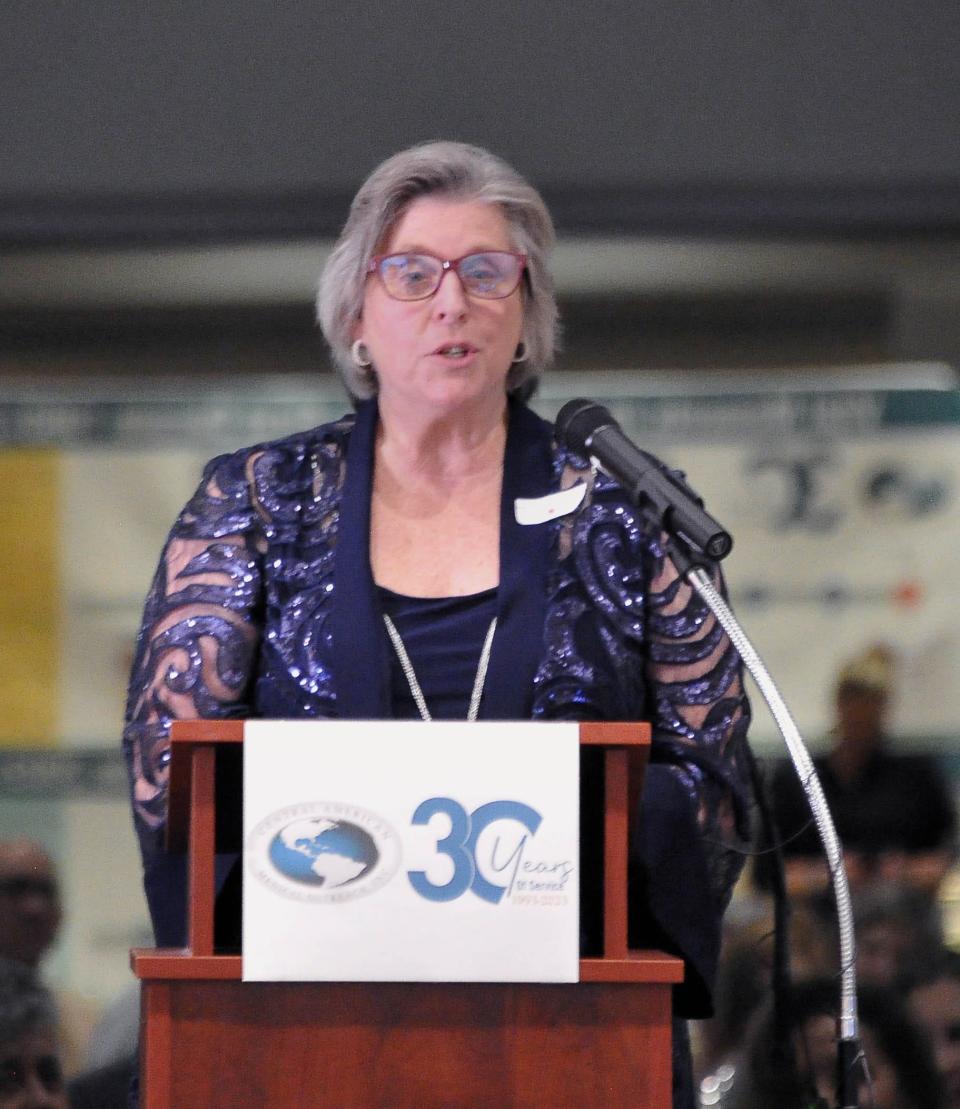
Brown, also a nurse, spent part of her growing up years in Honduras and connected with Tschiegg in the aftermath of Hurricane Mitch 25 years ago, when she asked, "How can I help?"
Speaking before the event on the enormity of Tschiegg's work with CAMO, Brown said, "It's just phenomenal. It's a 30-year milestone for CAMO."
"People are here from all over the world," including Laura Nunex Flores, former ambassador to the United States from Honduras, and Ana Castro, sister of the president of Honduras.
'This is a big deal," Brown said.
More: Wooster Community Hospital donates to Central American Medical Outreach
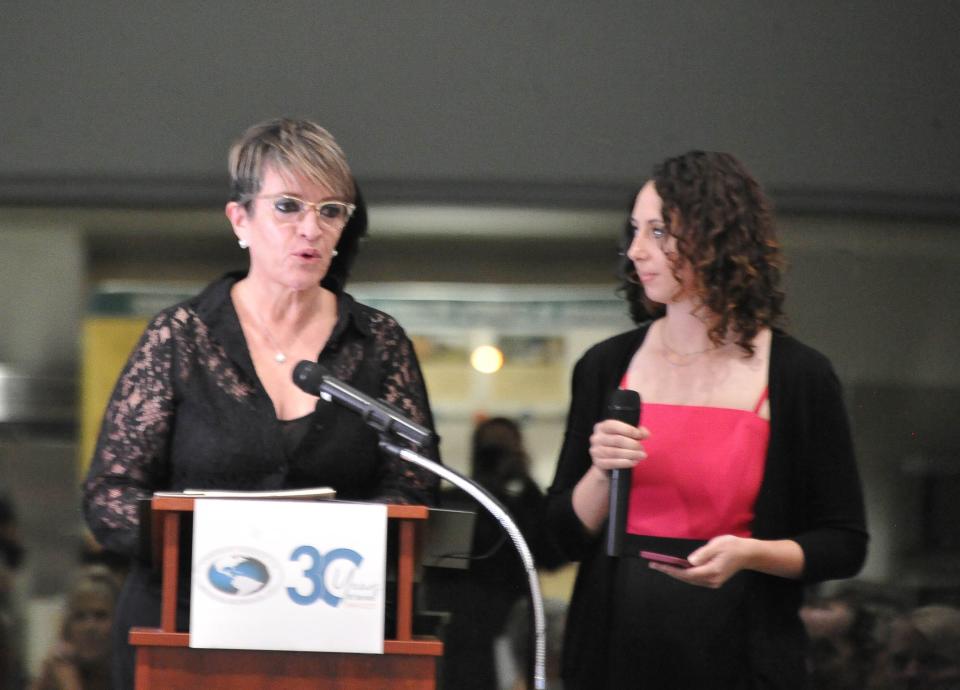
Also on hand with testimonial proclamations were three mayors − Anibal Erazo Alvarado of Santa Rosa, David Handwerk of Orrville and Robert Breneman of Wooster.
CAMO started with a duffel bag in Tschiegg's living room, collecting hospital supplies
It was not a retirement party because Tschiegg has no intention of retiring.
"Thirty years and going strong," said Tschiegg in a pre-event interview in which she recalled starting the organization with a duffel bag in her living room, collecting hospital supplies from her nursing work in the United States. They would have gone to waste; instead she shared them with the Santa Rosa community.
While she could possibly reduce her CAMO hours some time in the future, she would not at any point give up her mission.
"It's my baby," she said, asking rhetorically, does anyone stop caring for their children just because they have grown up?
During her stint as a Peace Corps nurse assigned to Santa Rosa, the death of 31 babies in one month because of the lack of resources was a big part of Tschiegg's motivation to devote her life to saving the lives of others.
"The need was so absolutely great," said Tscheigg, who has written a book called "Hope for the Forgotten: My Unlikely Journey."
What made it even more unlikely is the system of care developed by Tschiegg. Rather than a one-and-done clinic with no follow-up, CAMO features the "counterpart" approach − finding a gap in care and developing a permanent program for a long-term sustainable model engaging Honduran professionals as partners.
An example is the establishment of an eye clinic with the assistance of Dr. John Thomas of Wooster. It is now the largest ophthalmology facility in Central America.
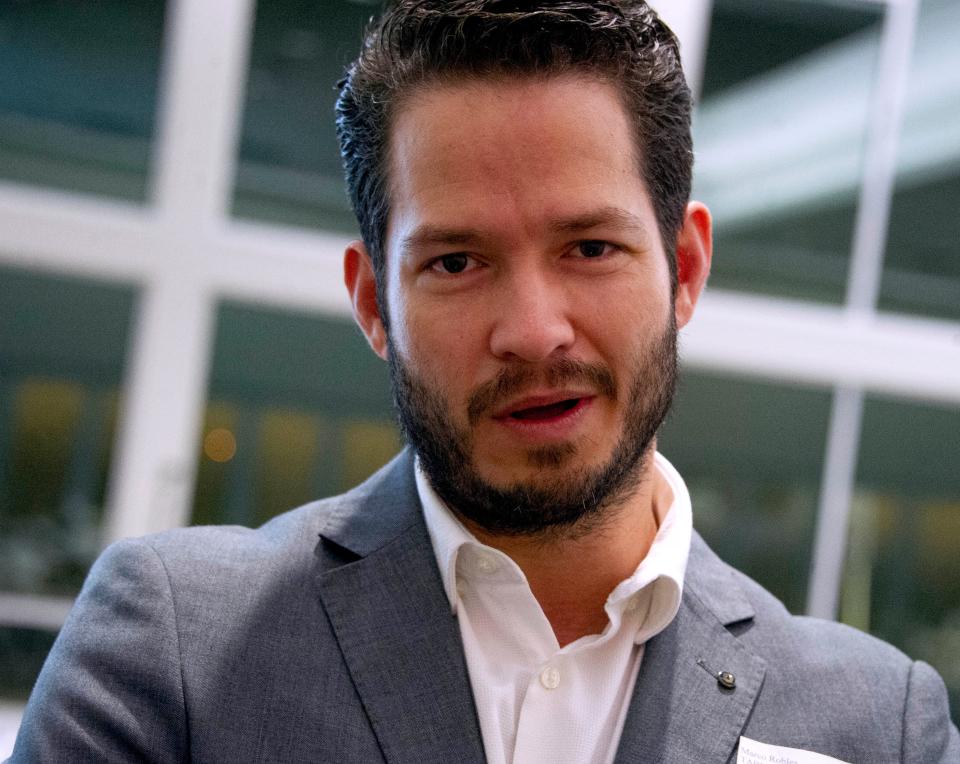
Honduran ophthalmologist Marco Pablo Robles recalled "so many eye needs," with nobody taking care of them.
"Just one lady" began the turn-around, according to Robles, who said that's not all Tschiegg did.
Making a difference in the areas of health, culture, community outreach and domestic violence, Tschiegg "inspired the city to be whatever the city wanted to be," calling the transformation "something remarkable."
Brent DeVore, president emeritus of Otterbein University, said he has served on about 27 nonprofit boards over the years. CAMO "is at the top of what they deliver" for the investment made, he said.
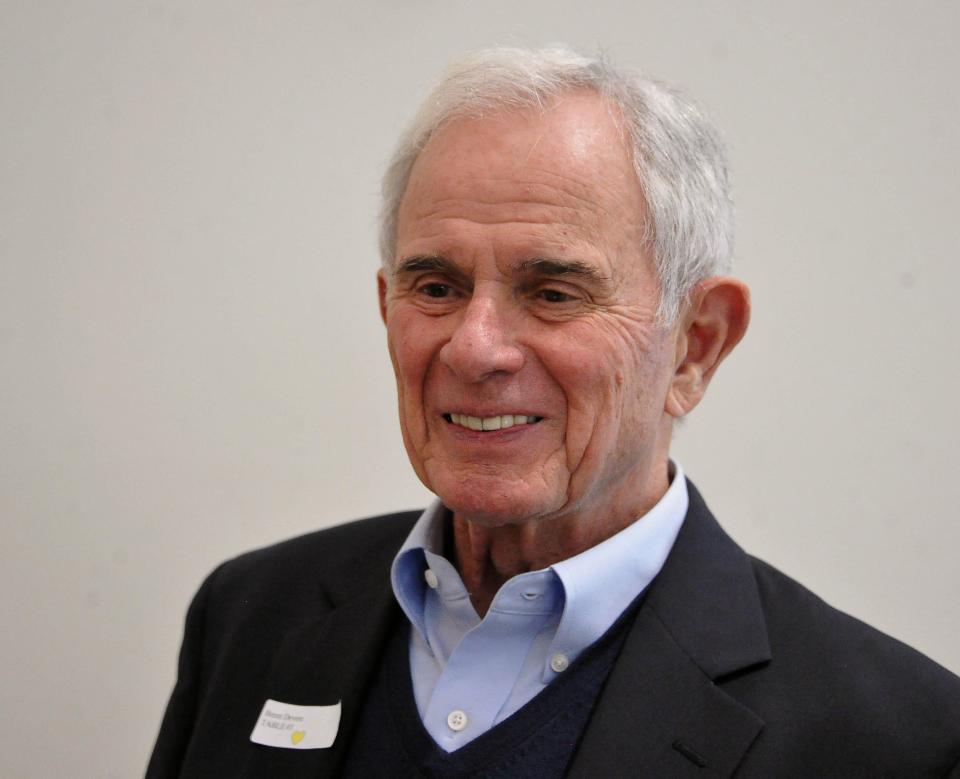
Programs supported solely by donations
Ninety-seven cents out of every dollar goes for programming, DeVore said.
It's all done through donations − no fees, he said.
There is a sliding scale for those able to contribute, but that is a very small number, said supporter Nancy Nikiforow.
"It's mind-boggling," DeVore said.
"This is such a great honor," said Tschiegg in a speech following a reception and dinner.
She noted about 25 people in her family were present, including her 93-year-old mother, who still volunteers for CAMO.
While Tschiegg was alone in her efforts for the first couple of years, she acknowledged all those who have come alongside her since then.
Looking out at the faces in the crowd, she said, "I see the blessings you have brought me."
People came along at just the right time to fill a need
She has always sought the guidance of God, noting just the right people came along at just the right time to fill a need - even plastic surgery for ears cut off in acts of violence against Honduran men.
Time after time, volunteer after volunteer made a phone call about helping her; she didn't call them.
"I believe those are divine-driven," Tschiegg said.
"She would be the first to tell you she didn't do all this alone," said emcee Cari DeSantis earlier in the evening, talking about the thousands and thousands of people who have benefited from Tschiegg's work.
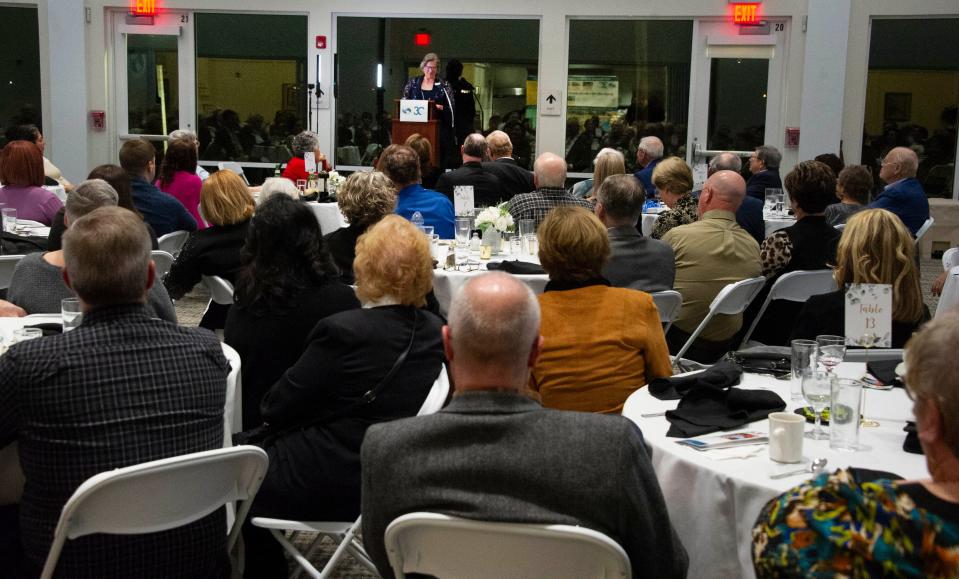
One little dream can grow and become something great
In her speech, surgeon Mary Boylan praised "how one little dream can grow and become something so great."
Tschiegg "had an idea and brought us all along," Boylan said.
While Tschiegg's Spanish may have frequently been her own version of the language, "her heart always spoke for her," said supporter Juan Carlos Elvir.
She embraced as partners in her mission the local people in one of the poorest countries in the western hemisphere, DeSantis said.
"They were people who had been forgotten by the rest of the world," DeSantis said.
Between 2021 and 2022, 93,126 medical services were performed; 9,492 boxes of medical supplies and of 550 pieces of medical equipment were donated.
"It has been a wonderful journey," Tschiegg said.
This article originally appeared on The Daily Record: Tschiegg lauded for CAMO's 30 years helping to heal Honduran city

